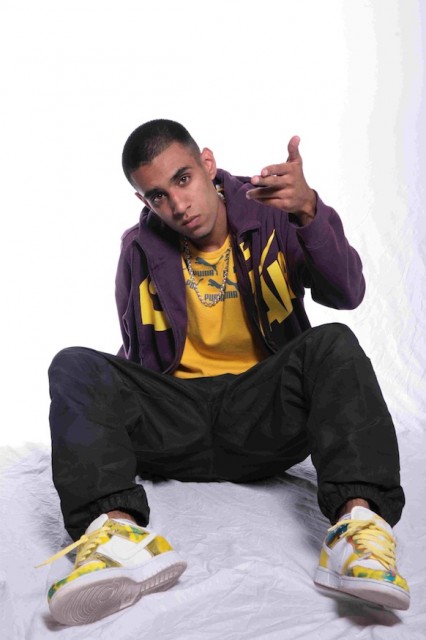British Asians picking up the mic, back in the early 90’s was a big thing. At the time hip hop was commonly understood as the music of Black American youth with its roots in Harlem. The likes of Grandmaster Flash, The Last Poets and Public Enemy had been confidently and eloquently using the medium of hip hop to decry the poverty, inequality and struggles of black people in America.
Asians across the ocean had a different (albeit at times related) agenda. For Brit-Asians in the UK to adopt this artform could lead to accusations of manufacturing black commonality, without fully understanding (or experiencing) the issues. Moreover, whilst Brit-Asians suffered similar prejudices and social struggles (and may continue to do so), there was no political incentive for this population to align itself with the struggles of black minorities in USA.
But when Asians picked up the mic in the hip hop arena, it had its own novelty value. At the time urban lore declared that Asian youths were introverted, gentle, academic people who all grew up to be city or medical professionals (btw nothing wrong with that, indeed that line just summed me up!) But then along came the likes of Fun-Da-Mental, Asian Dub Foundation (ADF) and Hustler’s HC, to provide a reminder that Asians could be just as diverse, creative and assertive as any other group.
Of these Fun-Da-Mental explicitly demonstrated their allegiance to black separatist politics such as that of the Black Panthers. Their third single, “The Wrath of the Black Man” sampled a speech by Malcolm X as its foundation. Such affinity led them to being dubbed the “Asian Public Enemy”. However, their logo also included a crescent- an allusion to Islam as well as the Pakistani flag, reflecting the cultural heritage of the group members.
Meanwhile ADF and Hustler’s HC, both signed to Nation, were releasing tracks which, whilst they did have political messages, were often less direct and I would say, centred more on the “Brit-Asian” experience. Hustler’s HC, through their raps told how Sikhs were as much influenced by temples as by social struggles. Ironically, this in itself becomes an indirect political aim- a rejection of the stereotyped portrayal of the submissive Asian youth to show the complexities and layers of cultural identity.
Similarly the complex and distinctive musical style of ADF could be better understood through their compositions. In my opinion they were never a fusion band. Yes, you can hear Indian instruments and Hindi songs sampled throughout their discography, however this is not merely transposed over hip hop beats from America. Instead, ADF merged these sounds which reflected their upbringing over electronic dance music which expanded as a genre in its own right in the UK from the late 80’s onwards. Here was a musical mirror of the artists, reflecting their unique identity as people of Asian origin, living in the UK of the 90’s.
These three acts were amongst the first British Asians to create hip hop records in the UK. Listening to them it is obvious they produced diverse styles that were not only different from American acts, but also from one another. Where Fun-Da-Mental produced overt political rap sampled over historically significant tracks, ADF produced their own compositions influenced by the UK dance scene, and meanwhile Hustlers’ HC placed more emphasis on their lyrical style and included everyday observations of their experiences.
So what do we learn about hip hop from how it was used by the first Brit-Asian, Hip-Hop acts? We learn about the similarities, but more importantly, the differences of Brit-Asian youth from their Black American counterparts,and each other. We also learn that hip hop can unite this diversity by virtue of its versatility as a platform which can host a range of social issues, musical styles and cultural heritages.
